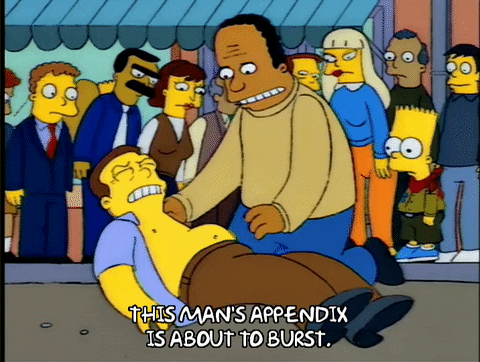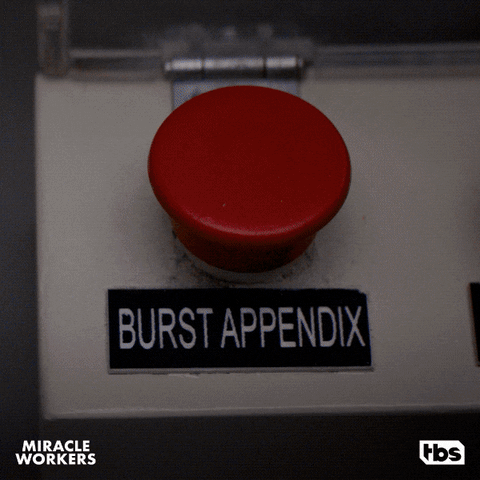


Are you ready for the appendicitis quiz? Appendicitis is nothing to scoff about. Your appendix, that little pouch in your belly, could potentially rupture and endanger your life if infected! Our appendicitis quiz can help you catch the symptoms early to avoid unnecessary complications. Answer the questions, and be careful!
Beware: this appendicitis quiz is just a handy tool for you to familiarize yourself with the symptoms of this dangerous condition. It is not a replacement for a medical diagnosis. If something about your health concerns you, go to see a doctor!
Let’s start by explaining what the appendix even is, exactly. It is a small, finger-shaped organ hanging out from your colon at the bottom right side of your stomach area. Its exact function has been a long-time mystery. Nowadays, scientists believe the appendix plays a role in protecting your guts and helping them recover after gastrointestinal diseases.
Sometimes appendix can get infected, leading to an inflammation called appendicitis. The most typical manifestation of appendicitis is pain in the lower right abdomen, but you may first feel it in your belly button area. At that stage, it’s easy to confuse it with a regular stomachache, but not so much as the condition progresses.
As the appendix swells, the aching gets more severe and moves lower. It worsens with moving around, jumping, coughing, or bending over. Other expected symptoms are nausea, throwing up, lack of appetite, fever, and a bloated belly. Cramps, gas, stomach distress, and difficulty peeing are also not unheard of.
When you feel sudden relief in your pain, it could mean the appendix ruptured. Without prompt treatment, the inflamed appendix might burst and spread the infection throughout the abdominal area. It is a dangerous situation to be in, so seek medical attention without delay if you suspect appendicitis.
Is it appendicitis or just gas?
A sudden pain in your abdominal area might be a sign of all sorts of tummy issues, including gas. Or maybe it’s appendicitis? The difference is potentially a life-and-death matter, so how to tell?
Gas pain tends to feel like knots in your stomach. You can feel it anywhere in your stomach, contrary to appendicitis which usually causes pain on the right side of the abdomen. If you felt a sense of relief after burping or passing gas, you were likely experiencing normal gas pain. It usually clears up on its own after a couple of hours.
Appendicitis causes a sharp, severe pain that doesn’t let go on its own. If it does, your appendix might have already burst! Seek medical attention if you experience pain that persists for several hours or intensifies.
Women, especially pregnant women and those over 50 might experience vague yet potentially dangerous symptoms. Keep an eye on these warning signs.
Appendicitis is the most observed reason to get surgery during pregnancy. Physical changes in a pregnant body might make diagnosis tricky. Besides, some appendicitis symptoms might be similar to typical pregnancy symptoms, like nausea or vomiting. When you’re pregnant and have appendicitis, you might feel pain higher up in the abdomen than usual with this condition.
Women over the age of 50 may also have nonspecific or misplaced stomach pain. To be fair, it is uncommon. Like most adults, they will experience pain in the lower right abdomen.
Children are yet another group to pay attention to. They might not always know how to describe their discomfort or communicate when something’s wrong. Young kids can be abnormally sleepy, have no appetite, or not want to move as much as usual due to pain. Swollen belly, vomiting, or diarrhea are also typical. If you observe high fever and lower abdominal pain, it’s time to take your child to an emergency room.
In most cases, the doctors will surgically remove your appendix if they suspect appendicitis. Thankfully, you will be perfectly fine without it. The surgery is still the standard procedure, although research shows antibiotics treatment might help you avoid it.
Do you have swelling and pain in the abdomen? It could be appendicitis! Our appendicitis quiz checks off the most common symptoms. Is your appendix in danger? Don’t wait up!